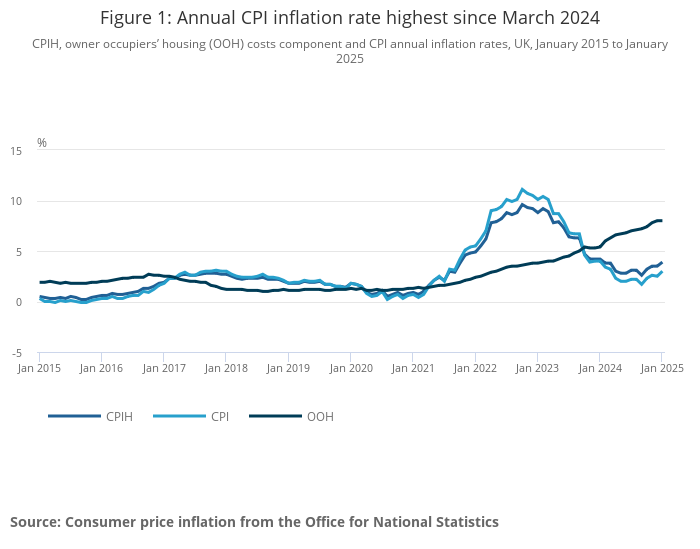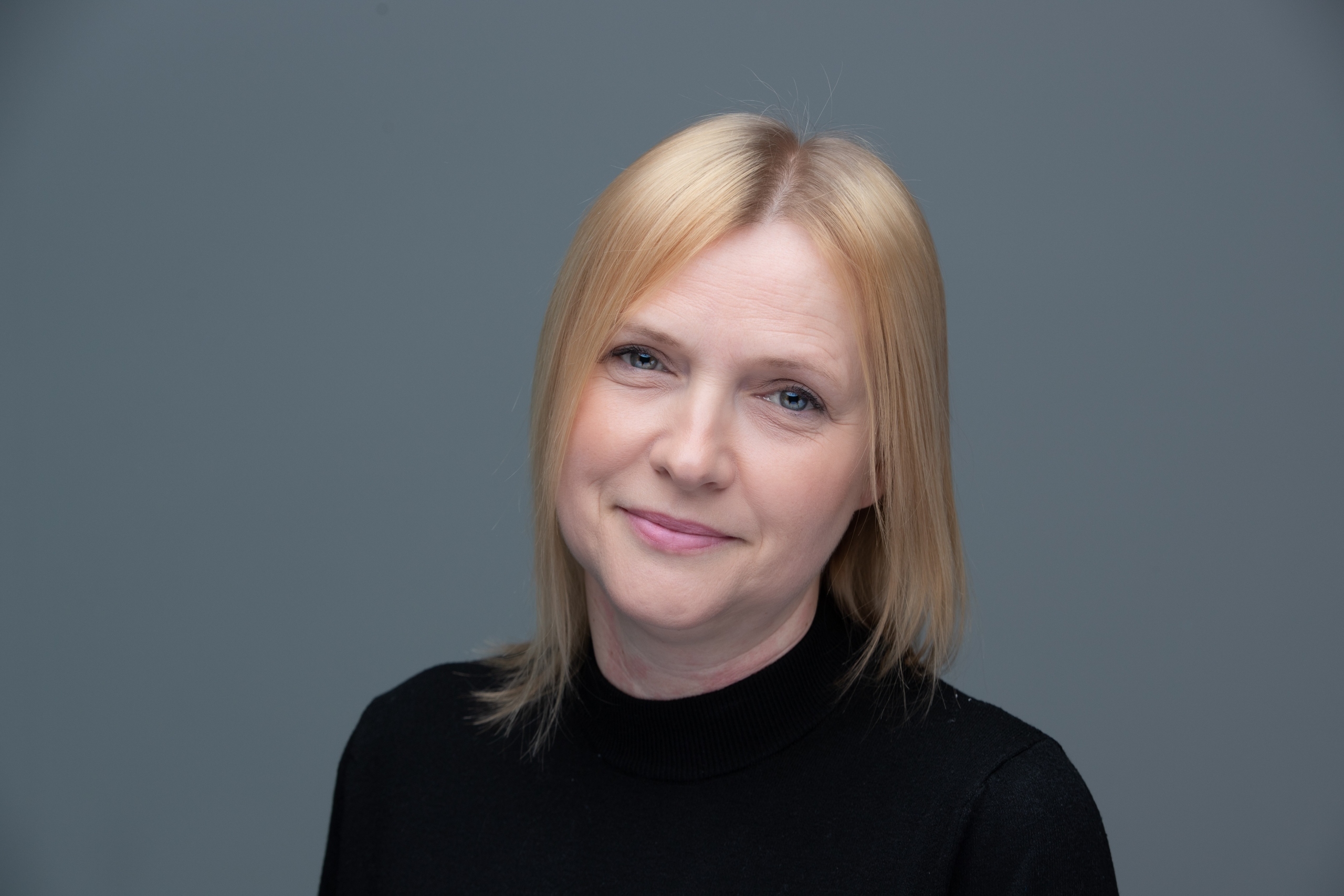The UK’s inflation rate surged to 3.0% in January, marking the highest level in 10 months and dashing hopes for early further interest rate cuts. The increase, which was larger than expected, saw the Consumer Prices Index (CPI) rise from 2.5% in December to its highest level since March last year.

The Office for National Statistics (ONS) revealed that the Consumer Prices Index including owner occupiers’ housing costs (CPIH) rose by 3.9% in the 12 months to January 2025, up from 3.5% in December 2024. The ONS attributed the rise to higher fuel bills, air fares, and the imposition of VAT on private school fees.
Private school fees saw a significant increase of 12.7% on the month, a change directly attributed to Labour’s private school fees policy. The inflation rate for education rose to 7.5%, up from 5% in December 2024. Food and non-alcoholic beverage prices also saw a notable rise, increasing by 3.3% from 2% in December 2024.
The closely watched inflation rate for services rose to 5.8%, up from 5.4% in December, the highest rate since August 2024. Core inflation, which strips out more volatile elements such as food and energy, rose to 4.6%, up from 4.2% in December, marking the highest rate since March 2024.
The Bank of England’s target for inflation is 2%, and the current rate of 3.0% is a significant deviation from this goal. On a monthly basis, CPI fell by 0.1% in January 2025, compared with a 0.6% fall in January 2024.

Mike Randall, CEO at Simply Asset Finance, commented on the impact of the inflation rise on businesses:
“With business costs already at a notable high, an increase in headline inflation will further squeeze UK SME margins as they look for avenues to grow in 2025. Infrastructure investment plays a crucial role in supporting the future of these businesses, but so far, the Chancellor’s recent speech on growth and infrastructure has done little in the way of immediate support”.

Neil Rudge, Head of Banking for Commercial at Shawbrook, added:
“The uptick in inflation this January will be disappointing for SME leaders already grappling with significant challenges—including a stagnant economy and the upcoming increase in employer NICs this April. These pressures, combined with uncertainty around potential tariffs for businesses trading internationally, create a volatile landscape that makes planning increasingly difficult”.

George Lagarias, Chief Economist at Forvis Mazars, provided a more optimistic perspective:
“Inflation returning to 3% should, oddly, not be too alarming. The Bank of England tends to dismiss energy and food cost spikes, which contributed the most towards price rises, and prefers to monitor the more ‘sticky’ parts of inflation, like wages. If food and energy price spikes don’t repeat too often, then last month’s inflation number will likely not deter the BoE from cutting rates going forward”.








